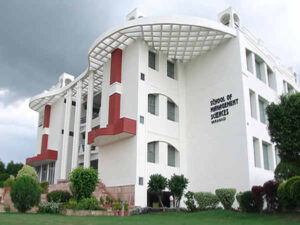A Bachelor of Commerce, or B.Com, is a three-year undergraduate degree, ideal for students aspiring towards a career in finance, taxation, and accountancy. This course imbues students with a broad spectrum of skills in areas such as managerial, analytical, and communication. A comprehensive understanding of domains like accounting, economics, business law, taxation, insurance, and management is provided, enabling students to identify issues effectively, source relevant information, and find practical solutions.
On completing a B.Com degree, a multitude of opportunities unfurls, presenting graduates with various paths to venture into. Here, we explore these routes in detail.
Career Opportunities for B.Com Graduates

Entering the job sector with a commerce degree opens up a vast array of roles:
- Accountant: B.Com graduates possess comprehensive knowledge of financial accounting, which prepares them to manage an organisation’s financial health. As accountants, they prepare balance sheets, profit and loss statements, and other financial reports, thus ensuring the financial stability of the firm. Accountancy provides a steady career path with the opportunity to advance into roles like Financial Controller, Chief Financial Officer, or even company Director.
- Auditor: B.Com students are trained in financial regulations and auditing practices. As auditors, they play a crucial role in maintaining transparency and ensuring compliance by examining records, verifying assets and liabilities, and documenting audit findings. The increasing focus on accountability and regulation in business provides a positive outlook for careers in auditing with prospects of progressing to a Lead Auditor or Audit Manager role.
- Consultant: Armed with business and financial knowledge, B.Com graduates can offer strategic advice to businesses. As consultants, they help improve operations, profitability, and management strategy. There is a constant demand for business consultants, particularly in the era of rapid technological change and globalisation. This role often offers excellent opportunities for career progression and specialisation.
- Company Secretary: B.Com careers like these require graduates to be well-versed in business law, ensure adherence to financial and legal practices, and maintain high standards of corporate governance. As businesses continue to value strong corporate governance, the role of a company secretary is becoming increasingly important, often leading to senior management positions.

- Business Analyst: The broad business understanding and strong analytical skills acquired during the B.Com course enable graduates to interact with business stakeholders, understand their needs, and develop efficient IT systems as business analysts. The rise in technology and data-driven decision-making bolster the demand for business analysts, with potential career progression to roles such as Project Manager or Business Intelligence Analyst.
- Finance Officer: B.Com careers like these need a strong grounding in finance and accounting. They assist finance and accounting teams with budget preparation, record management, and financial reporting. As businesses continue to grow and financial operations become more complex, the role of a finance officer offers strong future prospects, including advancement to Financial Controller or Finance Director.
- Sales Analyst: B.Com graduates’ strong analytical abilities and understanding of business operations equip them for roles as sales analysts, overseeing sales operations, producing promotional materials, and maintaining sales reports. The importance of data-driven decision-making in sales strategy ensures a promising career path, potentially leading to a Sales Manager or Sales Director role.
- Junior Analyst: Commerce graduates have a grasp of system design and development, qualifying them as Junior Analysts. They can act as a bridge between users and software developers, ensuring seamless communication and system development. The increasing reliance on technology across all business sectors offers robust future prospects, with career advancement opportunities as Senior Analysts or System Architects.
- Tax Accountant: The taxation knowledge acquired by B.Com students prepares them to write financial reports, handle book-keeping tasks, complete tax forms, discuss financial issues with clients, and strategise tax reductions as Tax Accountants. With the continual evolution of tax laws and increased emphasis on compliance, Tax Accountants have promising future prospects, potentially advancing to roles like Tax Manager or Tax Director.
- Stock Broker: With their extensive understanding of economics and finance, B.Com graduates can advise on investments and analyse which shares to buy or sell for optimal returns as stock brokers. The ongoing growth of the finance sector provides numerous opportunities for advancement in this career, from Stock Broker to Portfolio Manager.
- Economist: Commerce graduates are well-equipped to monitor economic trends, develop forecasts, and prepare reports on economic indicators as economists. Given the increasing emphasis on data-driven policies and financial planning, the demand for economists remains robust, with potential career growth into roles such as Senior Economist or Policy Advisor.
- Business Development Trainee: This career needs a broad understanding of business and management strategies. Commerce graduates can help businesses expand and diversify, acquiring new customers and selling products and services to existing ones. This role provides a stepping stone to more senior positions within business development, such as Business Development Manager or Director.
B.Com graduates can find employment opportunities in business consultancies, educational institutes, industrial houses, public accounting firms, policy planning, foreign trade, banks, merchant banking, marketing, treasury, and forex departments.
Pursue A Higher Degree Course

For those inclined towards higher education after B.Com, several postgraduate options are available:
- Master of Commerce (M.Com): Pursuing an M.Com degree after B.Com amplifies a graduate’s understanding of commerce, accounting, management, and economics-related subjects. This postgraduate programme further refines the skills learned in a B.Com course, making graduates more competent and enhancing their appeal to potential employers.
M.Com graduates often secure roles that require a deep understanding of commerce and economics, such as Financial Analysts, Business Consultants, Corporate Managers, and even University Lecturers. As such, an M.Com degree often leads to faster career progression, enabling one to assume more senior positions.
- Master of Business Administration in Finance (MBA Finance): An MBA in Finance takes a B.Com graduate’s career prospects to a whole new level. Unlike an M.Com, an MBA in Finance doesn’t limit the graduate to commerce-focused roles. It equips them with a comprehensive understanding of general business management and its functions, along with a specialised focus on finance-related subjects. This combination of skills is highly sought after in various industries and sectors.
Graduates can venture into roles such as Financial Manager, Financial Analyst, Investment Banker, and Risk and Insurance Manager. In addition, they are well-prepared to handle executive roles and are often fast-tracked into leadership positions. With its blend of theory and practical training, an MBA in Finance provides B.Com graduates with a competitive edge in the job market, opening up a broader array of career opportunities.
Certified Courses to Enhance Your Skills
Several certified courses can be pursued to gain specialised knowledge and skills:
- Chartered Accountant (CA): This prestigious certification, regulated by the Indian Chartered Accountants Institute, offers Commerce graduates an in-depth understanding of financial management and auditing. As CAs, they are qualified for high-profile roles in financial consulting, auditing, tax management, and strategic planning. Achieving a CA qualification elevates one’s career trajectory, providing opportunities in senior management and executive positions within the financial sector.
- Certified Management Accountant (CMA): Offered by the Institute of Management Accountants, USA, a CMA qualification enhances a B.Com graduate’s expertise in financial planning, analysis, control, decision support, and professional ethics. This international certification opens avenues for roles such as Financial Controller, Strategic Planner, and Management Consultant in multinational corporations, improving both the career prospects and earning potential of B.Com graduates.
- Certified Public Accounting (CPA): The CPA qualification, conducted by the American Institute of Certified Public Accountants (AICPA), equips Commerce graduates with knowledge of US accounting principles and practices. This gives them a competitive edge while working with US-based financial firms and expands their opportunities globally. As CPAs, they can take up roles in auditing, taxation, consulting, corporate governance, and risk management.
- Association of Chartered Certified Accountants (ACCA): The ACCA is a globally recognised accountancy qualification that broadens career paths into accounting, banking, management, or consulting. Commerce graduates with ACCA certification are equipped with an advanced understanding of accounting principles and business management, increasing their employability in international markets.

- Certified Bank Manager Programme: This certification provides a comprehensive understanding of banking and finance, banking laws, treasury, credit, risk management, and banking strategies. B.Com graduates who complete this programme can move into managerial roles within the banking sector, enhancing their career prospects significantly.
- Diploma in Banking And Services: This postgraduate diploma offers specialised knowledge in banking and financial services, preparing Commerce students for various roles in banks, financial institutions, and insurance companies. The programme expands their job opportunities and equips them to deal with the complexities of the banking sector effectively.
- Certified Financial Planner: This certification specialises in financial planning, insurance and risk management, investment planning, and tax planning. As Certified Financial Planners, Commerce graduates can work as financial advisors, helping individuals and corporations manage their finances efficiently. This increases their job prospects in the finance and investment sectors.
- Certificate Course in Project Finance: This course provides B.Com graduates with advanced skills and practical knowledge in project appraisals, lending, and finance. With this certification, they can pursue roles as Project Finance Analysts or Consultants, enhancing their employability in financial institutions, consulting firms, and corporations.
- CRISIL Certified Analyst Programme: The CRISIL Certified Analyst Programme combines coursework with job assignments and interactive seminars to acquire financial and business skills. Commerce graduates who complete this programme are well-equipped for roles in financial analysis, credit rating, risk assessment, and investment consulting, thereby improving their career prospects and upward mobility in the financial sector.
In summary, the vast array of career opportunities and higher study options open to B.Com graduates can pave the way for a thriving career in commerce and finance. It’s a matter of choosing the path that best aligns with your career aspirations and strengths.





